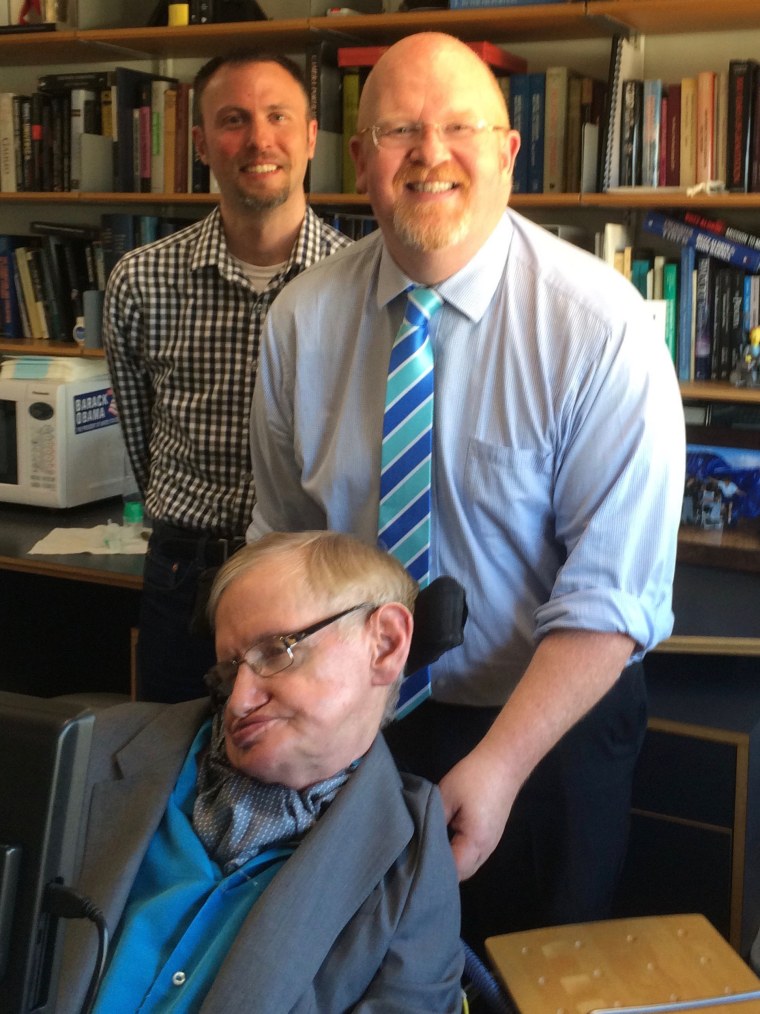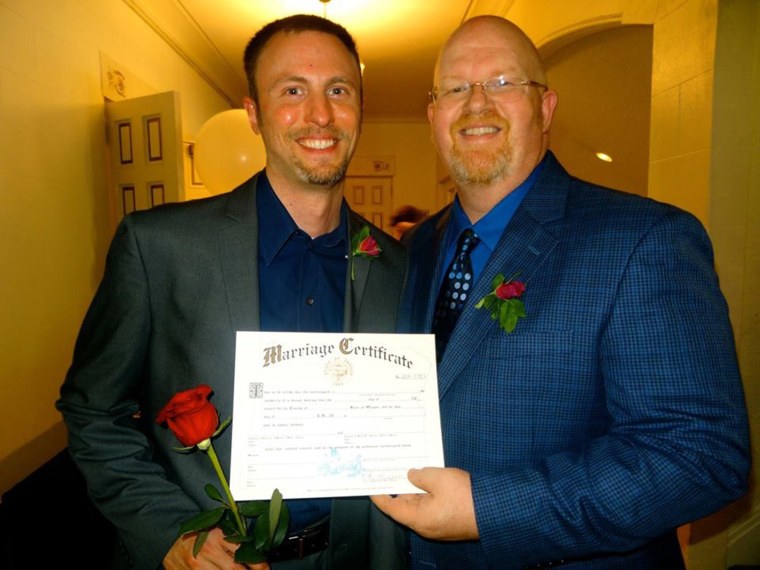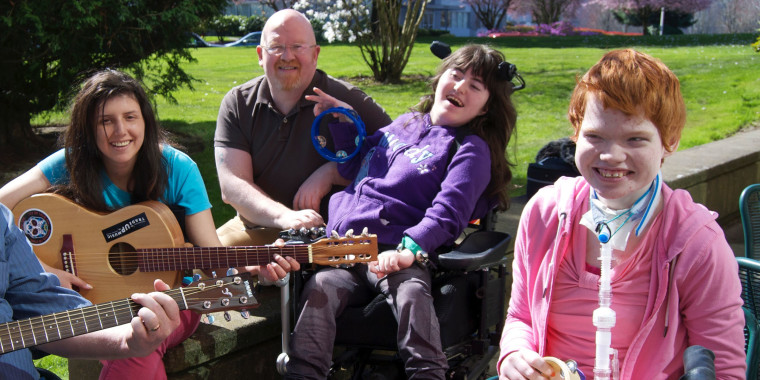Lonny Guenther was home with his daughter, Joann, last week when the news came on the TV that the Supreme Court ruled that LGBTQ people can't be fired based on their sexual orientation.
Joann, who is 27 and has severe disabilities, immediately lit up — because she recognized one of the faces on TV as her former teacher, Brett Bigham.
Bigham, the 2014 Oregon Teacher of the Year, was fired in 2015 from Multnomah Education Service District in Portland after accusing the school district of harassing him because he is gay. He was part of last week's landmark decision, which extended the law banning workplace discrimination on the basis of sex to include the LGBTQ community.
"He was always going above and beyond for his students."
Now the parents of Bigham's previous students are calling that case a victory for everyone.
"I think it's great," Guenther told TODAY. "I think it's sad that it took that long. I don't see why they shouldn't have the same security as everyone else."
He praised Bigham, known as Mr. B to his teachers and students, as a selfless educator. Bigham taught medically fragile special education students in a transition program for high school graduates of Multnomah County. Many of his students had severe disabilities and could not speak, and so they were learning how to use voice output devices, or “talkers,” in his class. Because of this, Bigham was a fan of the late physicist Stephen Hawking, who famously used a voice output device. When Bigham, who kept in touch with students after his firing, met Hawking in 2017, he even got him to record a message for Joann, who has cerebral palsy and had been struggling to use her own talker.

“It’s such a hard machine,” Bigham told TODAY. “With cerebral palsy, your body jerks up and down, so it clears the machine each time you try to type. She had to work so hard just to get one word down.”
Eventually she was communicating in entire sentences. Guenther recalls one of her favorites: “You’re killing me, Mr. B.”
"He was always going above and beyond for his students," Geunther said. "With my daughter in particular, he was really good at motivating her."
Kristin Hilfiker, a nurse and home care provider for people with disabilities, has had three foster children in Bigham's class.
"The man is full of joy," she told TODAY. "He doesn't see kids with disabilities — he sees people who need adaptations in their environment to learn. It's all about learning and transitioning to be an adult."

She said that in many other programs and classrooms, her children, who all have severe disabilities and most of whom are on ventilators, have often been disengaged and "parked" for long periods of time. Once a teacher even told her that her former foster daughter Molly couldn't sit at the front of the classroom because her ventilator made too much noise and because "suctioning in the classroom is disgusting."
"That is not in any shape or form what (Bigham) is like," Hilfiker said. "That's the difference in what made him such a superior teacher.”
So when Hilfiker saw the recent news about the Supreme Court ruling, she was thrilled. She only wishes it had happened sooner, so that Bigham would never have lost his job in the first place.
Bigham’s story was part of an amicus brief the Supreme Court reviewed before it made its decision.
In a recent Twitter thread that has since gone viral, Bigham outlined the events that led to his firing in 2015, writing that his supervisor once told him that if he said he was gay in public he would be “shot in the head.”
Bigham attempted to fight the termination and filed multiple complaints against the Multnomah Education Service District through his union. He later accepted a payout of $140,000. But it took the school district years to issue a public apology.
That came just last week.
“We apologize to Mr. Brett Bigham,” a statement on the school district’s website reads. “No one should have to endure the discriminatory actions that Mr. Bigham describes experiencing at MESD. They were wrong when they occurred, just as they would be wrong today.”
Bigham still lives in Portland and works as a substitute teacher for special education classes but hasn’t held a full-time job since his termination.
“I’ve been blacklisted and that sucks,” he said. “But, you know, I work in the same way that I did when I had my own classroom and it means I inspire some people in a building I haven’t been to before, and then I move on.”
The apology, like the Supreme Court news, took him by surprise.
“I have not cried that hard since my father died,” he said. “I couldn’t talk. I put my head inside my shirt and cried like a kindergartner.”
Yet he’s not sure he would call what happened a win — and he misses his students.
“The kids got robbed,” he said. “I was the end of line for school. No one else was going to help those kids after me. It’s hard to feel like I’ve won, because I’ve been in fight mode for six years. I feel like everyone won except my students.”

